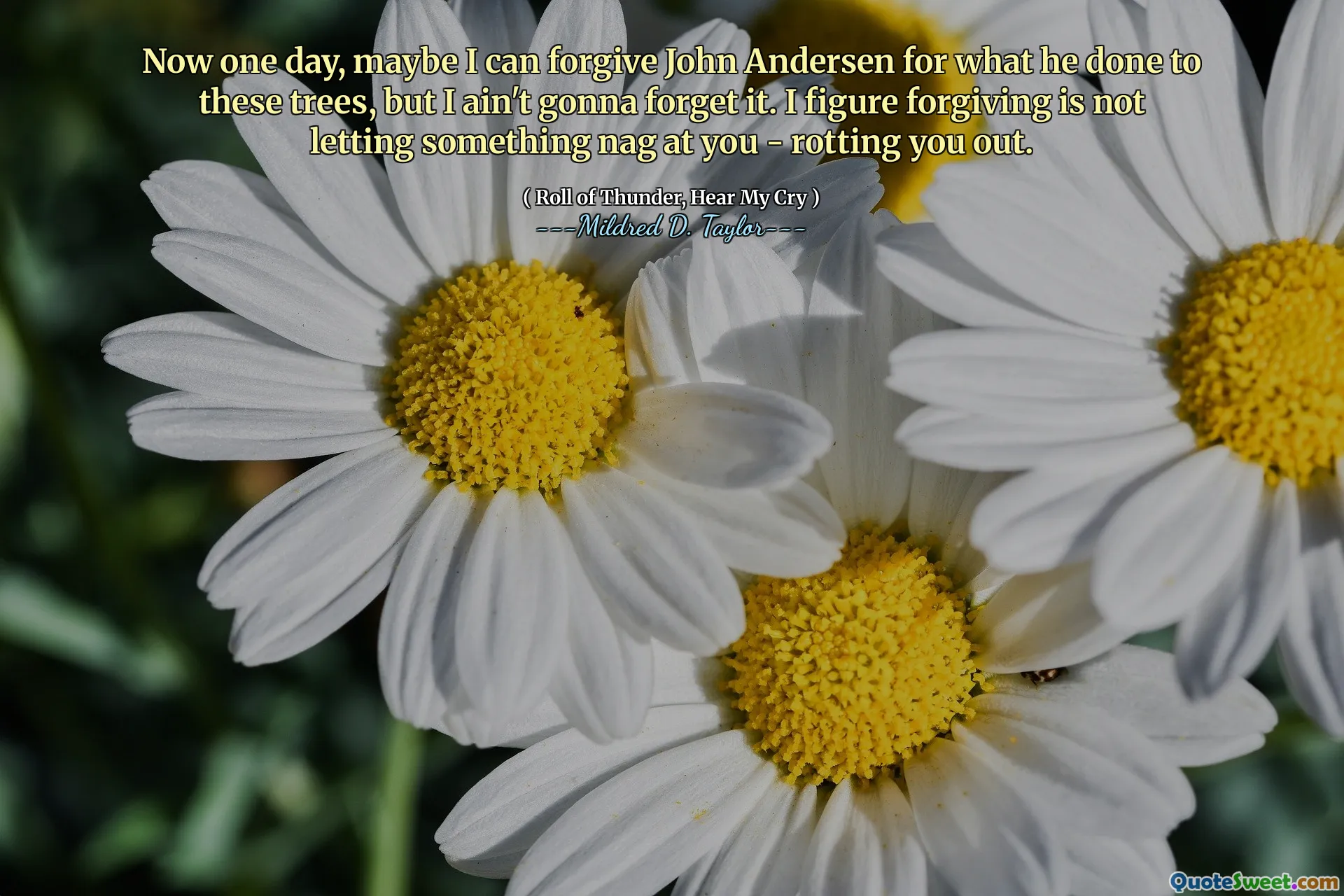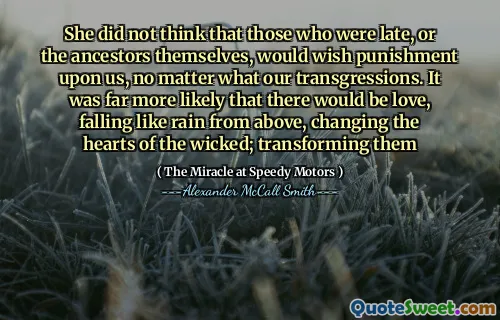
Now one day, maybe I can forgive John Andersen for what he done to these trees, but I ain't gonna forget it. I figure forgiving is not letting something nag at you - rotting you out.
This quote reveals a nuanced understanding of forgiveness that extends beyond mere pardoning. The speaker distinguishes between forgiving and forgetting, emphasizing that forgiveness is an internal process aimed at peace rather than erasure of past wrongs. This perspective resonates deeply with the human experience; forgiving allows an individual to liberate themselves from the corrosive effects of resentment and anger, which can degrade one's well-being over time. The metaphor of 'something nagging at you' versus 'rotting you out' vividly illustrates how holding onto hurt or betrayal can gradually consume a person's vitality, much like rot erodes the integrity of wood or flesh. By choosing forgiveness, one recognizes truth and acknowledges the harm done without allowing it to dominate one's emotional landscape. It signifies maturity and strength—accepting that mistakes or injustices might never be fully rectified or erased, but the emotional burden can be lighterened through understanding and letting go.
Furthermore, this perspective highlights that forgiveness is a process, perhaps requiring time and reflection, not an instant resolution. It also respects the memory of the event—acknowledging what happened—and yet, consciously choosing to cease dwelling on it. The distinction between forgiving and forgetting is crucial; forgetting might involve suppression or denial, which can be psychologically unhealthy, whereas forgiving keeps the lessons learned and the scars as part of one's history, not a source of ongoing pain. This insight encourages readers to embrace forgiveness not as a sign of weakness but as a demonstration of strength, resilience, and inner peace. It promotes the idea that true freedom from pain lies in acceptance and the conscious decision to move forward without the emotional fermentation of grievances over time.
Overall, the quote encapsulates a mature philosophy of emotional health, emphasizing that forgiveness is an act of self-care, freeing oneself from the corrosive effects of unrelieved anger, while Accepting that the past has shaped us but does not have to imprison us in ongoing suffering.




